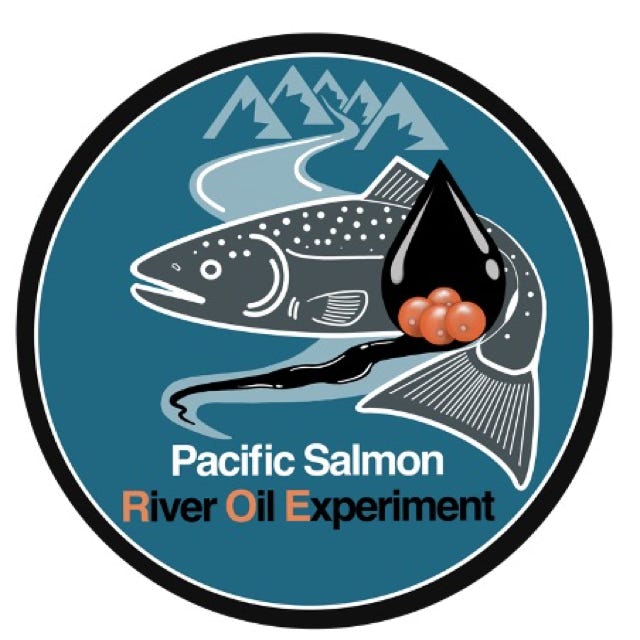Salmon River Oil Experiment (ROE)
We are working to determine how oil spill response in Canada’s west coast salmon rivers can be improved.
NSERC Alliance Advantage Grant:
“Optimizing Oil Spill Countermeasures for Pacific Salmon Rivers”
Principal Investigator: Jules Blais, University of Ottawa
Co-applicants: Diane Orihel, Queen’s University
Kevin Mumford Queen’s University
Partner:
Environment and Climate Change Canada, Oil Research Laboratory in Ottawa
New pipeline projects in western Canada place added risk to Pacific salmon populations from oil spills. To address these concerns, we have assembled a team of experts including environmental chemists, engineers, and toxicologists to examine oil spill scenarios in rivers where Pacific salmon spawn. This project involves a series of landmark studies on the fate and behaviour of oil and its major chemical constituents following an oil spill into a series of mesocosms to simulate river systems where Pacific salmon spawn.
Our specific objectives in this five-year project are:
(1): To establish a research consortium among government, academic, Indigenous, and regulatory organizations to minimize risk to developing salmon embryos from oil spills;
(2) to determine factors affecting the fate of oil and its constituents in a flowing Pacific salmon spawning river environment;
(3) to generate a model to predict exposure of developing Pacific salmon eggs and embryos to polycyclic aromatic compounds (PAC), the major constituents of oil that are toxic to fish; and
(4) to test and optimize bioremediation strategies as a way to reduce harmful exposures to Pacific salmon eggs and embryos from oil spills. Our goal is to develop methods and recommendations to determine and minimize harmful impacts from spilled oil to developing salmon eggs and embryos.



